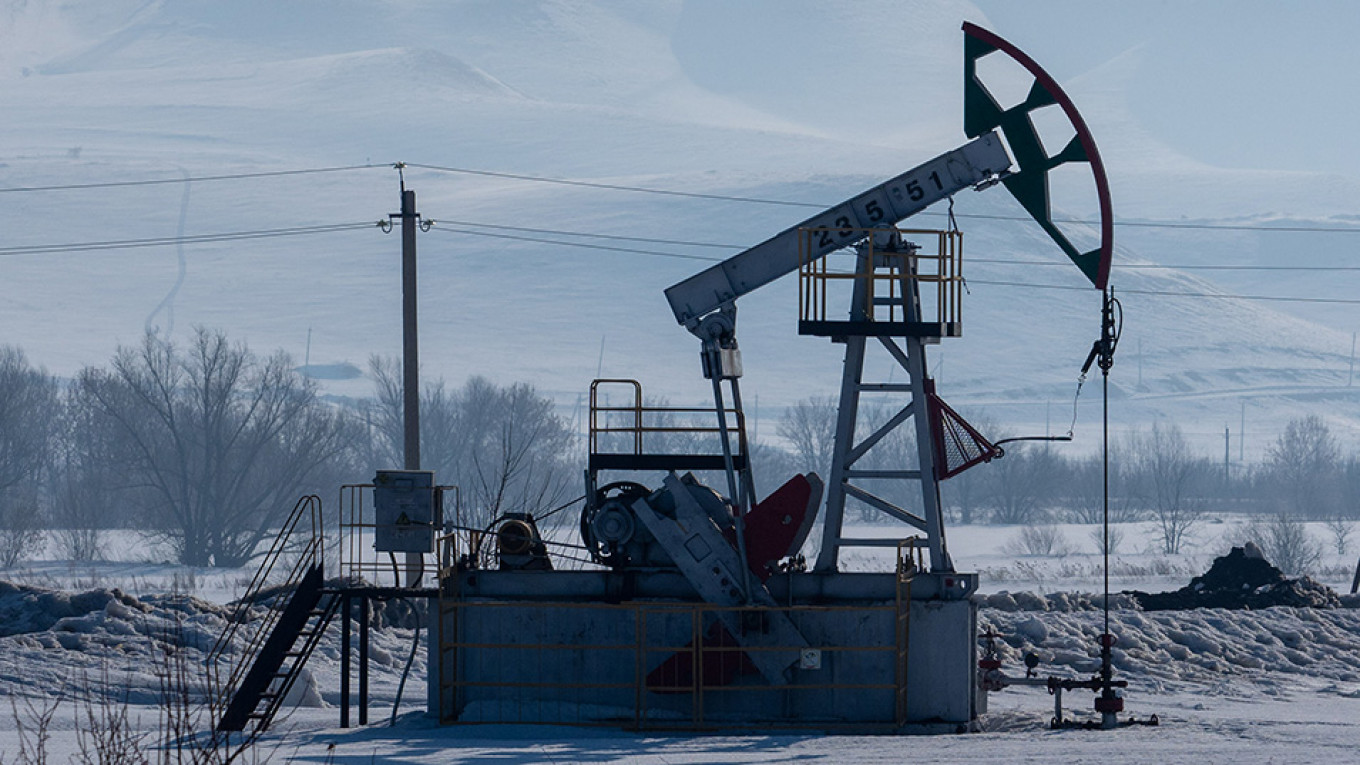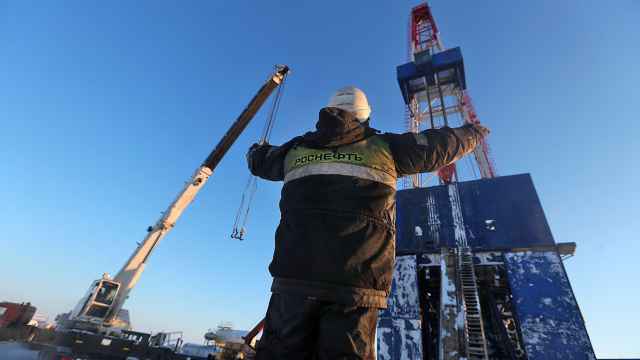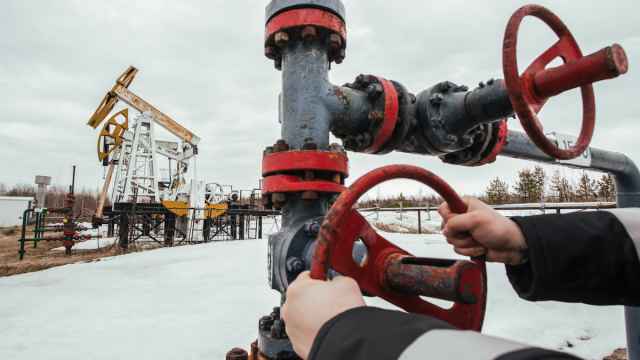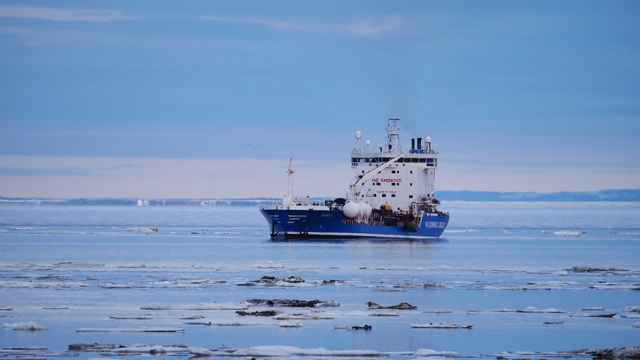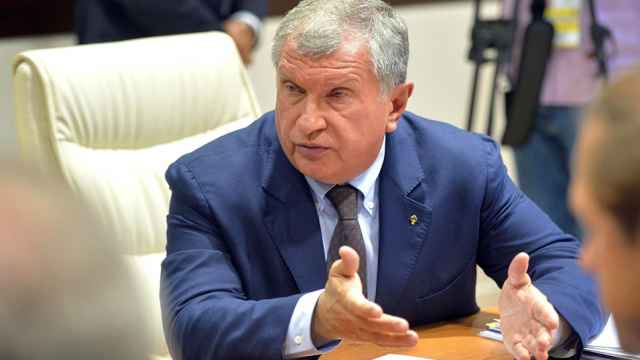Two close companions with decades-long cooperation sat down for a talk in the Kremlin on Tuesday and it was the Arctic that was at the top of their agenda. Igor Sechin has worked with Vladimir Putin since the 1990s and is considered among the most powerful and influential men in the country.
This time, it was the Vostok Oil project that was the key issue of discussion.
Tundra oil
Igor Sechin and his state-owned oil company Rosneft intends to develop large oil reserves on the wide-stretching tundra lands of the northern Ural region — and export them through a projected seaport on the Taymyr Peninsula.
It will be the biggest project in the modern-day global oil industry, Sechin underlined to Putin.
According to the Rosneft head, Vostok Oil will include the development of 15 new industry towns, two airports, a seaport, about 800 kilometers of new pipelines, 3,500 kilometers of new electricity lines and 2000 megawatts of electric power capacity.
It will also create 100,000 new jobs and lead to a 2 percent annual hike in national GDP, he added.
To the Arctic coast
The project is based on the development of several oil fields, including at least three in the Vankor area. The new pipelines and projected seaport terminal will enable the partners to export an estimated 25 million tons of oil per year through the Northern Sea Route.
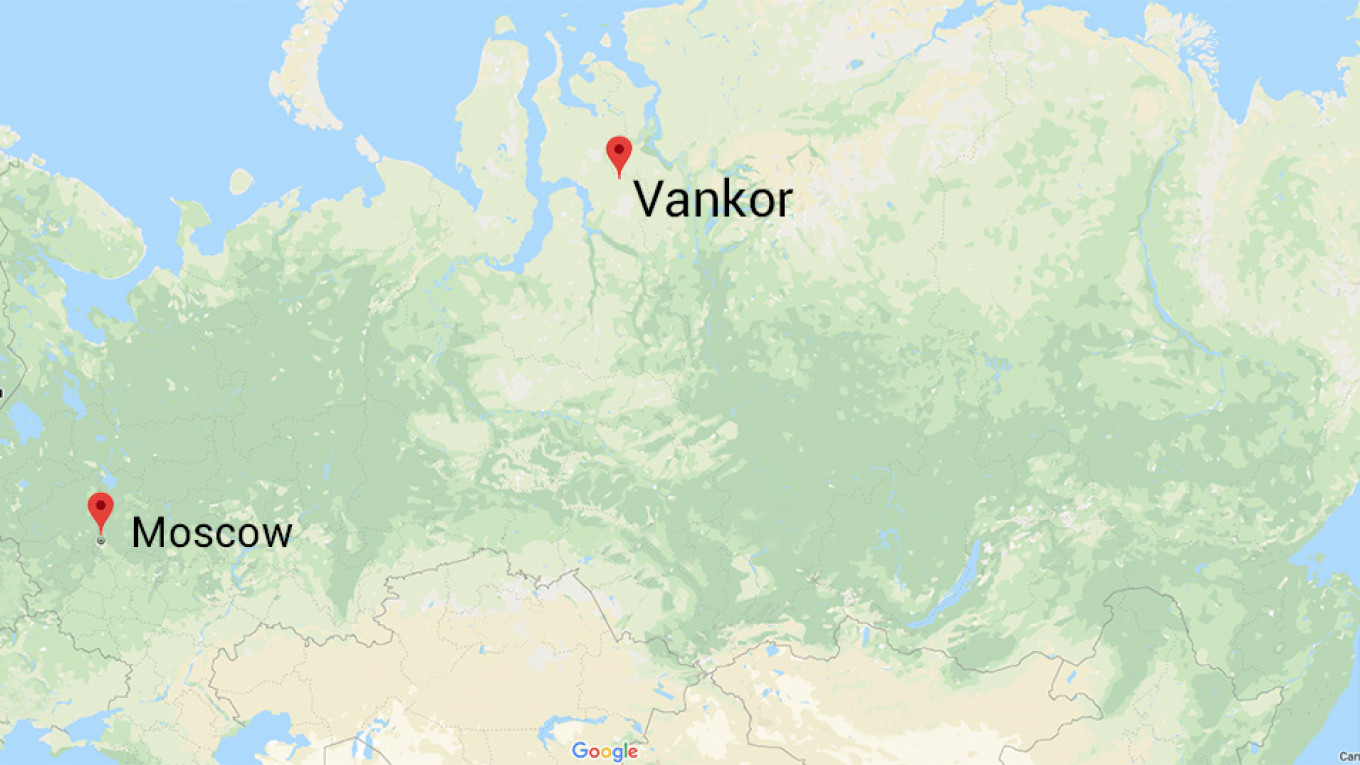
The pipeline is also projected to carry oil from Payakha, the fields located along the Yenisey River. By year 2030, a total of 100 million tons of oil can be exported through the pipeline and the new seaport in Taymyr. A fleet of top ice-class Arc7 tankers are to be built for the project, Sechin has previously said.
Massive tax cuts
The oil company leader has the support he needs from the Kremlin. New Russian legislation paves the way for massive investments in the company’s new Arctic project, as well as several more giant petroleum investments in the region.
Rosneft and other oil developers will get large tax cuts that are to cover project development costs.
The legislation that in January was hammered through government includes measures that are to trigger the development of nine new huge Arctic hydrocarbon projects with investments as high as 14.7 trillion rubles ($231 billion). Vostok Oil is the biggest of the projected new projects.
Northern Sea Route
On the backdrop of the new projects lies the Kremlin’s desire for a hike in shipments on the Northern Sea Route (NSR). Vladimir Putin in May 2018 made the Arctic shipping route a national priority and requested a total of 80 million tons of annual shipments on the route by year 2024.
According to Igor Sechin, it is the president’s stress on the NSR that lies behind the development of Vostok Oil.
"Vladimir Vladimirovich […], we have been requested to provide for shipping volumes on the Northern Sea Route and as part of our fulfillment of this task our company is working along with partners on developing a new oil and gas province in our country’s north, in the Taymyr Peninsula," Sechin said.
The resource basis of the province is about five billion tons of oil, he made clear.
Indian buyers
More than 10 trillion rubles ($157 billion) will have to be invested in the area, and 2 trillion in the first project development phase.
Rosneft has over the last years worked actively with Indian partners and that country’s Minister of Petroleum & Natural Gas Shri Dharmendra Pradhan last month confirmed that Indian companies will take part in Vostok Oil.
In addition to Indian partners, Western companies will also take part, Igor Sechin told Vladimir Putin.
"There are a number of other Western investors and we expect this to become a big, a huge international project."
Support from the President
"We count on the support from your side in this project," Sechin told the president.
Putin appeared full of praise for Sechin’s new initiative.
"Igor Ivanovich, the project is indeed very big, and of course very promising. It includes a boost of national GDP and increase of shipments on the Northern Sea Route, and of course a strengthening of Russia’s positions in the Arctic."
At the same time, he expressed a certain reservation.
"I wish you the best of luck, [but] make sure that you account for everything in the correct manner," he said.
A Message from The Moscow Times:
Dear readers,
We are facing unprecedented challenges. Russia's Prosecutor General's Office has designated The Moscow Times as an "undesirable" organization, criminalizing our work and putting our staff at risk of prosecution. This follows our earlier unjust labeling as a "foreign agent."
These actions are direct attempts to silence independent journalism in Russia. The authorities claim our work "discredits the decisions of the Russian leadership." We see things differently: we strive to provide accurate, unbiased reporting on Russia.
We, the journalists of The Moscow Times, refuse to be silenced. But to continue our work, we need your help.
Your support, no matter how small, makes a world of difference. If you can, please support us monthly starting from just $2. It's quick to set up, and every contribution makes a significant impact.
By supporting The Moscow Times, you're defending open, independent journalism in the face of repression. Thank you for standing with us.
Remind me later.


